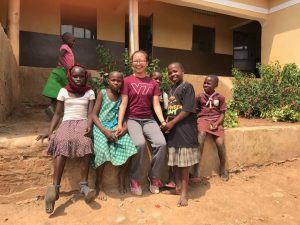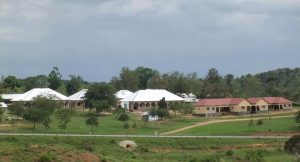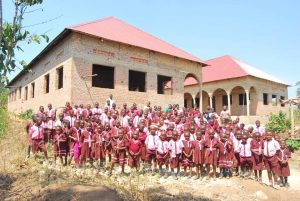Improving Household Sanitation with Dry Stands
“These dry stands provide a sanitary space for washed dishes, pots and pans to dry off the ground and away from harmful bacterias,” Katie Thompson, U.S. volunteer
Sanitation is critical to the health of any household, especially those in remote villages. People wash dishes and pans outdoors by hand. There is always danger of flies, bugs, and animals stepping on clean dishes when lefts lying on the ground to dry. URF has stepped in to help families alleviate this problem by building dry stands for them. Katie, reflects on her experience with this new project below:
“One of the main projects I worked on during my time with URF was building what we called, “dry stands” at least 2 days a week. A dry stand is essentially a large drying rack made from sticks, nails, and chicken wire. The villagers provided the sticks, and URF provided the nails, chicken wire, tools, and laborers.
These dry stands provide a sanitary space for washed dishes, pots and pans to dry off the ground and away from harmful bacterias. As URF volunteers, we worked with village leaders to find which families were in need of dry stands, and from there we worked one village at a time until the dry stands were completed. The types of people we worked with were usually elderly people, or people unable to build these structures themselves, whether it be from lack of resources or otherwise.
Each village we visited had different feel but we were always greeted with warmth and gratitude. I really enjoyed working on this project because I learned new skills like hammering and using a panga, but I also got the chance to meet so many different people in the villages. I loved practicing my Luganda with the locals, working outside, and singing and dancing with children we met along the way.
For me, the dry stands were rewarding because after an afternoon of hard work we could see tangible results, a new dry stand! However, I’d like to think that our friendly presence and time spent in the villages made an impact, too.”










